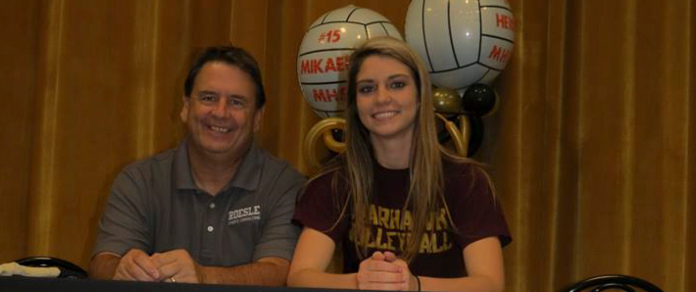In the Game recently sat down with Dennis Roesle, a local sports consultant who has been helping Emerald Coast athletes play collegiate athletics for the past 17 years. Roesle knows the ups and downs involved in the recruitment process. He said there are a lot of misconceptions about what it takes to attain an athletic scholarship. So, to help de-mystify this subject, ITG picked Roesle’s brain, and we want to share with you, the athlete, the parent, or the curious mind.
Roesle considers several important factors when deciding whether to represent a potential client: selectivity, fit, sport, understanding, academics, and timing. Many athletes and parents do not understand what earning a scholarship involves or what responsibilities fall on collegiate athletes. So, let’s examine the areas of importance:
Selectivity – Roesle does not sign up just any athlete; he screens them based on their academics, want, desire, and ability. Some national recruiting services will take anyone’s money. A key point to remember is that college is not for everyone.
Fit – A lot of people focus just on the scholarship, but it is also important to go to school where you feel you can belong, thrive, and gather an education that allows student-athletes to succeed.
Sport – Roesle mainly works with women’s volleyball and softball. But, student-athletes can participate in over 40 sports on the collegiate level.
Understanding – A big part of Roesle’s approach is educating athletes and the parents on rules, the game, levels of play, and the process of recruiting.
Academics – Less than 2 percent of collegiate athletes will play professional sports, so it’s important to keep in mind the reason for college: to gain an education that leads to a better life. This begins in the athlete’s freshman year, not their senior year of high school. Bottom line: If you cannot stay eligible, you cannot play.
Timing – Schools begin the recruiting process three to four years in advance. This means as early as one freshman year they are evaluating future prospects. An important factor to remember is that even though an individual has a certain school they are set on, that program might have already filled its needs.
Roesle feels what sets him apart from others is his personal touch. He limits the number of clients so he can personally create their videos, go watch them in games and tournaments, and help them navigate the system. A former student-athlete at Missouri Western, Roesle shows clients that there our opportunities at every level. Having helped hundreds from the Emerald Coast chase their dreams and play college athletics, he receives a level of satisfaction from seeing these athletes pursue their dreams athletically and academically.
Helping Athletes Help Themselves
Written by : Arnold Gamber | Photography submitted by: Dennis Roesle



